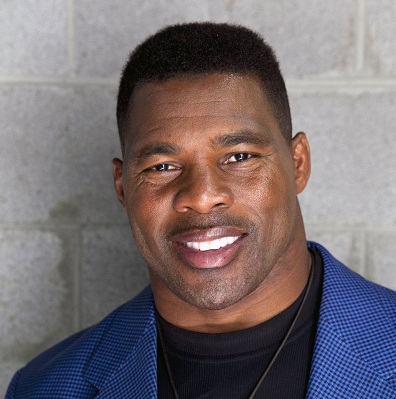Last weekend, the 2015 NFL Hall of Fame induction ceremonies were held and as always, the speeches from the inductees were inspiring. The NFL has so many great stories of men who have defeated the odds, men who overcame hardship and adversity and men who use their success to help others.
When you talk about great athletes who have a great story, you can’t leave Herschel Walker out of the mix. He is not only one of the greatest Running Backs in college and professional history, Herschel is remembered as a physical specimen with guts, heart and skills – all of which played a pivotal role in his success on and off the football field.
I grew up watching Number 34 play for the Georgia Bulldogs and hearing the legendary stories of the way he worked out. I was very fortunate to go out to dinner after a UFC fight in Las Vegas, along with a few friends, including TapouT president Dan “Punkass” Caldwell.
We spoke about how he trained; he explained that growing up in a poor family of seven children, he did not have access to weights. He was overweight, had speech problems, and was bullied. But Herschel was not going to be stopped by a lack of opportunities.
He described his daily routine of doing twenty-five hundred sit-ups, two thousand pushups, and fifteen hundred pull-ups. He made it sound somewhat easy as he explained, “It’s not what you think. I constantly change my arm positions for the exercises and often do it while watching TV.” In my mind, that would not make that much of a difference, but then again I am not Herschel Walker.
“Working out like that started young for me. I was always desperate to be a great athlete; it made me feel good inside.”
At the University of Georgia, he and his team won the Sugar Bowl and the NCAA Championship. Herschel earned the 1982 Heisman Trophy, was named All-American three times and was inducted into the College Football Hall of Fame.
In the NFL, Herschel’s twelve-year records included rushing for more than eight thousand yards and scoring sixty-one touchdowns. But Herschel loved athletics beyond the football field. He competed in the 1992 Winter Olympics in the two-man bobsled and has pursued yet another sports career in MMA.
Despite his great success as an athlete, Herschel recalled in his memoir, Breaking Free: My Life with Dissociative Identity Disorder, that “[his] life, at times, was simply out of control.” He often felt angry and self-destructive.
“To me, whenever I stepped onto the football field, the track, the bobsled run, or even playing a video game with my son, what I was participating in was a matter of life-and-death seriousness. I was that competitive. When the doctors explained to me that I had developed other personalities (alters) to help me cope with and survive the pain and alienation I experienced as a child and adolescent, I was skeptical. There may have been as many as 12 of these alters that enabled me to cope with my reality. The diagnosis was Dissociative Identity Disorder (DID), a mental disorder previously known as multiple personality disorder.”
Herschel’s understanding of this disorder has helped him better understand himself:
“The truth also is that for most of my life from childhood onward, I had a form of mental illness that enabled me to simultaneously be a fierce competitor consumed by a desire to be the best and dominate in a quiet, unassuming man who let his actions do the talking.”
It may be what Herschel decided to do off the field that was the greatest display of his guts. Herschel didn’t have to share his personal battles with anybody, but he did—and he sees himself as an advocate for others. While some might have taken this diagnosis as a setback, Herschel used the same strength and inner human spirit to overcome the challenge.
“[I took] it on as my life’s mission—not only to understand DID for my personal benefit, but also to understand it to help other people enrich their lives, lessen their level of pain, and find comfort in knowing that …[we] are not alone.”
Herschel’s spiritual side—like many of the individuals in this book—shines through:
“When God repairs our lives, we become the person He created us to be, with the ability to transform other lives we touch. Unless we allow God to repair us, we will never know the uniqueness of ourselves and the abilities we have to offer mankind.”
What makes you unique? How can you use your uniqueness to positively impact others?Have the guts and willingness to exit your comfort zone to make a difference in your life and the lives of others.
(c) 2015 Jerry Gladstone

